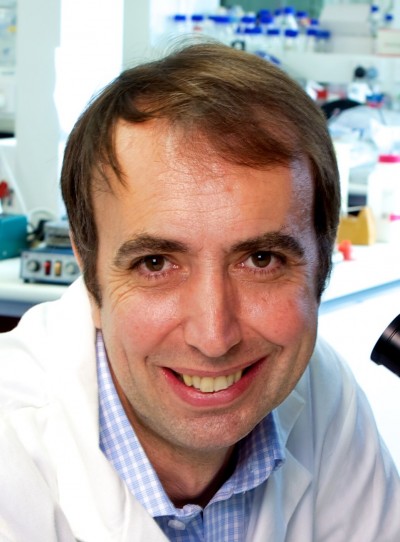Australian-led research has demonstrated the possibility of fighting one genetic mutation with a second ‘beneficial mutation’ to overcome anaemia associated with haemoglobinopathies.
The research showed CRISPR-mediated genome editing could be used to introduce the genetic variant British-198 associated with Hereditary Persistence of Fetal Hemoglobin (HPFH) into human umbilical cord blood-derived erythroid progenitor (HUDEP-2) cell lines.

Professor Merlin Crossley, Dean of Faculty of Science, UNSW
The substitution led to significantly boosted foetal haemoglobin levels – potentially useful to counter faulty adult haemoglobin and anaemia in conditions such as sickle cell disease.
The limbic asked Professor Merlin Crossley, from the University of NSW, about his research and the implications.
Was British-198 an odd genetic mutation just waiting to be identified as a rare solution to a much more common problem?
Yes, it was first identified by Professor Sir David Weatherall in 1974. Related conditions had been noted in Africa since 1955. But these are indeed rare variants. Rare but useful variants, as they boost fetal globin production, and that is useful in patients carrying defective beta-globin genes.
What do we know now about the molecular mechanism underlying foetal haemoglobin expression and how to switch that on in adults?
We now know that two repressors are required to silence fetal globin. We don’t yet have drugs that interfere with their action. Numerous agents non-specifically affect our genomes and turn many genes on, including fetal globin, but obviously these agents have side effects.
How can this knowledge be applied to create a new therapy for blood disorders? What are the next steps and major challenges?
The idea of editing ‘beneficial’ mutations, rather than adding new genetic material, replacement genes, or correcting mutations, may be very useful. But its utility will depend on how efficiently it can be done. Can enough stem cells be corrected and transplanted? If not then it would be better to continue the hunt for small molecule inhibitors of the repressors.
People are either excited or terrified about the potential of gene editing. What do you find fascinating about CRISPR?
I like the genius of discovery – taking basic science and developing such an effective tool. I am not terrified, since genetic modification is not new and so far the technology has been well regulated.